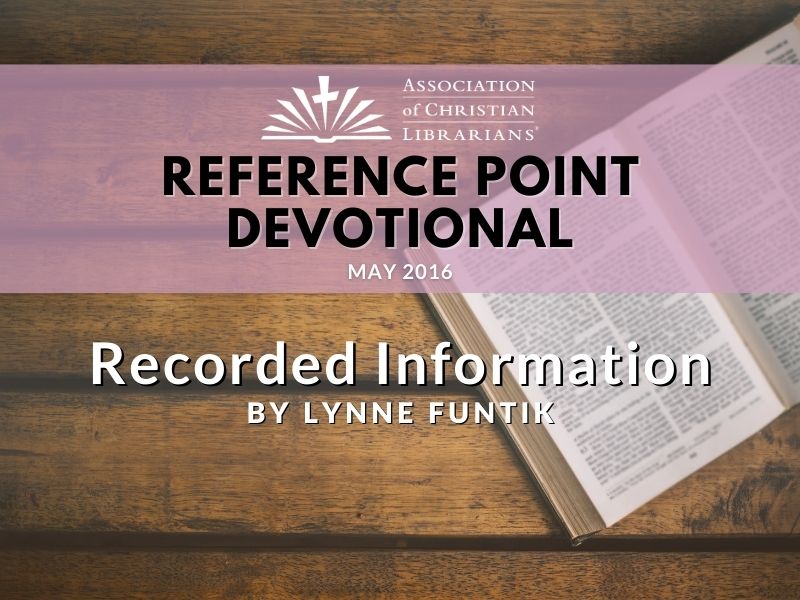“And you show that you are a letter from Christ delivered by us, written not with ink but with the Spirit of the living God, not on tablets of stone but on tablets of human hearts.” (2 Corinthians 3:3 ESV)
Perhaps you have had the opportunity to speak about the history of recorded information. It can be amusing—and even entertaining—to watch your audience realize the progression of the human record throughout time. Beginning with ancient tablets and scrolls, some valued library manuscripts were buried in the sand to prevent them from becoming treasures of war. Or watch your listeners comprehend that in another time and place, only the very wealthy had the privilege of learning to read and a library was part of their exclusive dwelling. At the same time, wandering minstrels relayed news from near and far because few knew how to read or had access to books. The oral tradition continues today as almost every family has its own historian of family lore (that is occasionally embellished, depending on who is telling the story). The second wave of technology, Gutenberg’s printing press, had a profound impact on history only to be overtaken by the third wave, the Internet. And, beyond.
In all of recorded information, there is one book, the Book of books, that stands above the rest. Franklin Logston, a Biblical scholar, long gone on to his reward, stated it this way:
Think of it carefully, study it prayerfully,
Deep in thy heart let its oracles dwell.
Ponder its mystery, slight not its history,
None can e’er love it too fondly or well.
The Apostle Paul referred to the value of recorded information and asked specifically for the parchments along with his cloak when in a dark and dingy prison. He also used the metaphor of books in commending the Corinthians with high praise: “And you show that you are a letter from Christ delivered by us, written not with ink but with the Spirit of the living God, not on tablets of stone but on tablets of human hearts” (2 Corinthians 3:3).
The apocalyptic Book of the Revelation provides a sobering reminder that recorded information continues to be written in two books: the Lamb’s Book of Life that registers each person who has accepted Jesus Christ as atonement for his sin (20:15), and the Book of Life (20:12) that will one day reveal all that we have done.
With the admonition to be salt and light, how very encouraging that our wise and loving Heavenly Father has provided principles and precepts for everything we need for life and godliness through His recorded information, the Bible.

Lynne Funtik
Lynne serves as Information Services Librarian/Special Populations Liaison at Cedarville University’s Centennial Library in Cedarville, OH, and has been a member of ACL since 1987.


